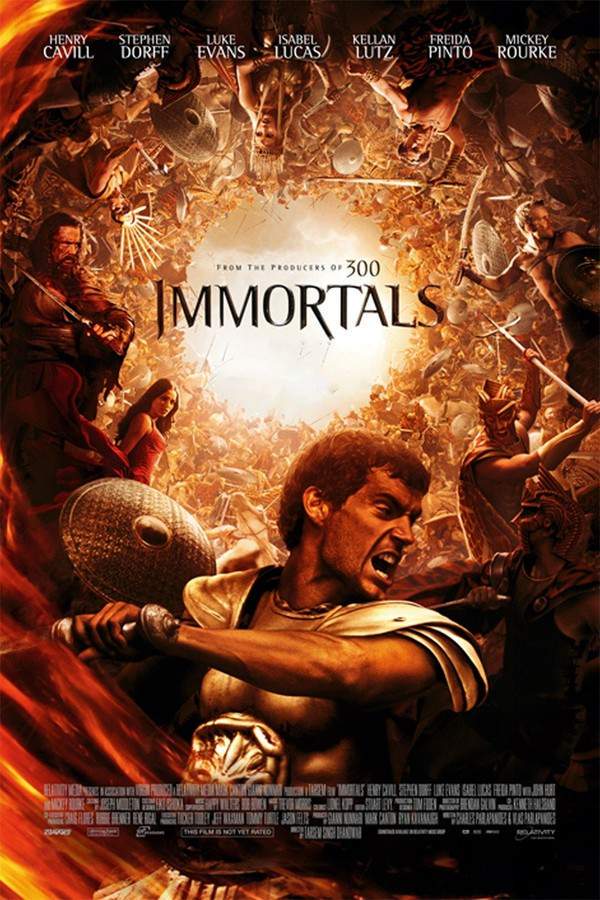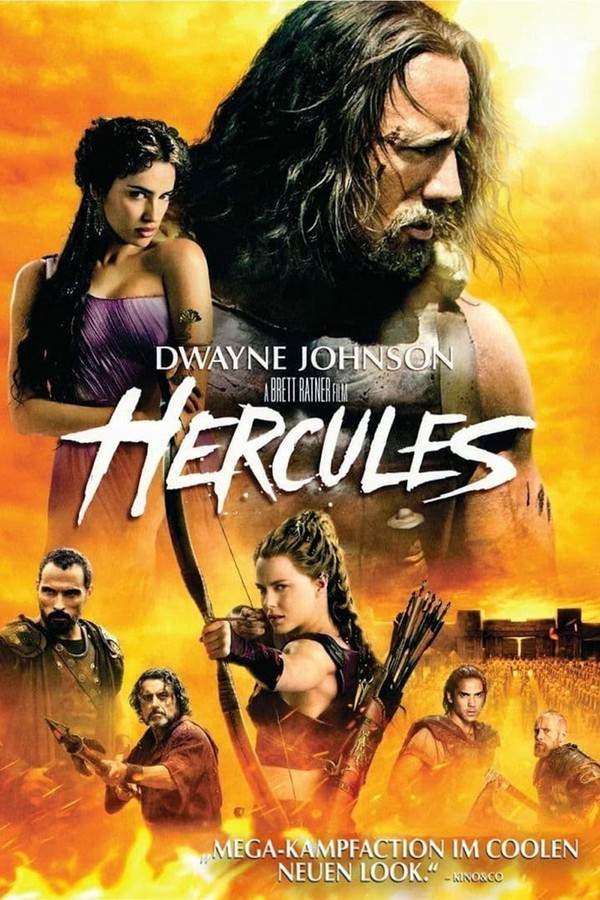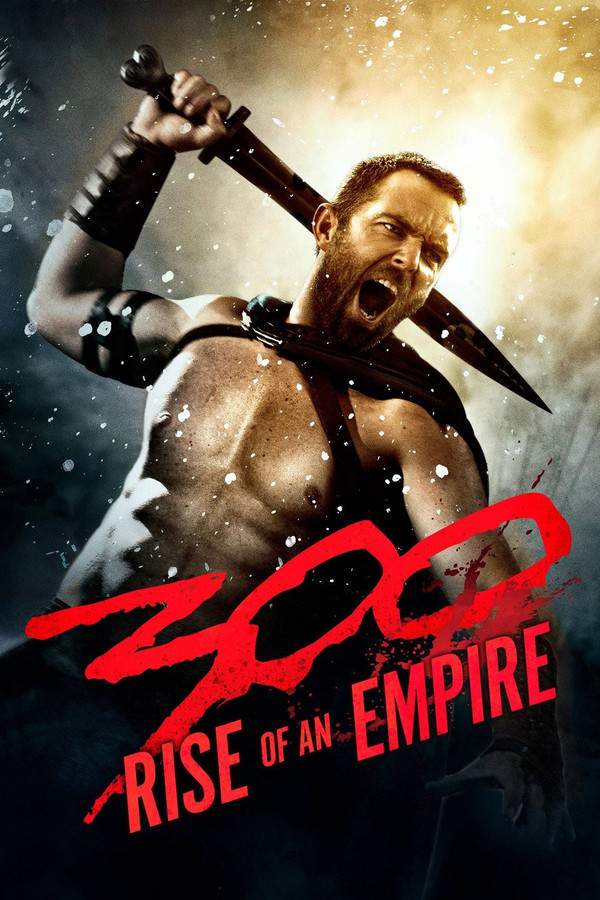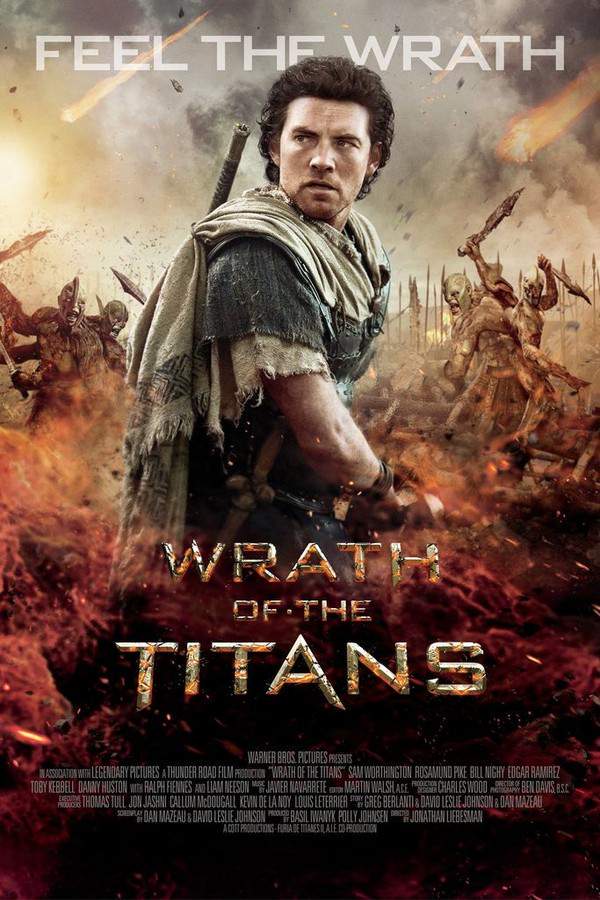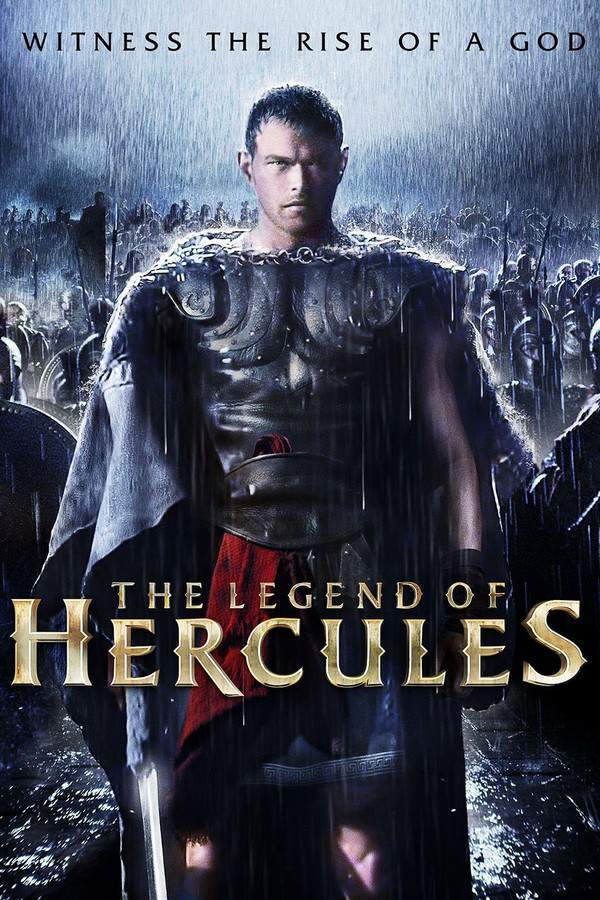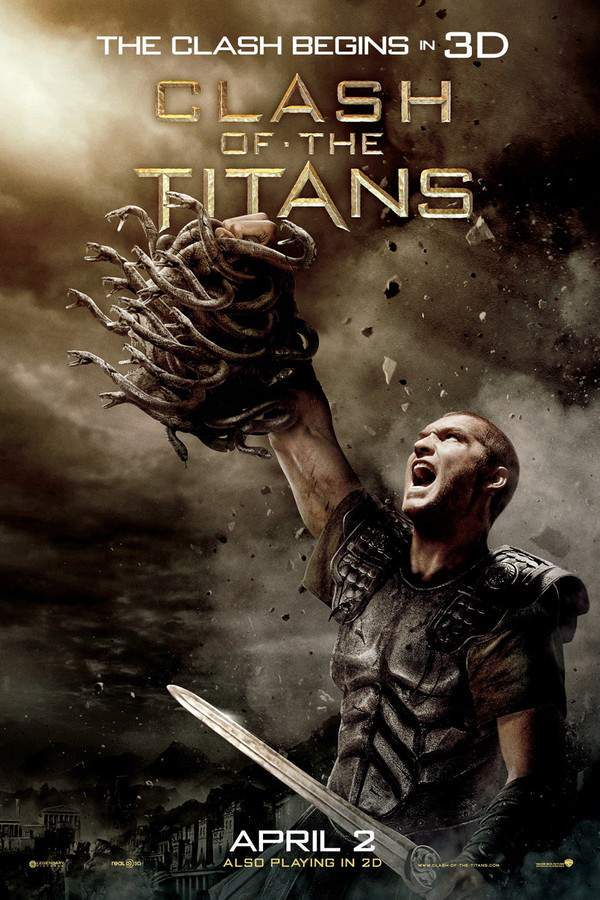
Clash of the Titans 1981
Directed by

Desmond Davis
Made by

Metro-Goldwyn-Mayer (MGM)
Test your knowledge of Clash of the Titans with our quiz!
Clash of the Titans Plot Summary
Read the complete plot summary and ending explained for Clash of the Titans (1981). From turning points to emotional moments, uncover what really happened and why it matters.
In the Ancient Greek era, the power-hungry King Acrisius of Argos, portrayed by Donald Houston, locks away his daughter Danaë (played by Vida Taylor) to prevent the prophecy that foretells his demise should she bear a son. Yet, in a twist of divine fate, the mighty Zeus, embodied by Laurence Olivier, manages to impregnate her, despite her confinement. Once Acrisius learns of the pregnancy, he hastily casts both Danaë and her newborn son, Perseus, out to sea in a wooden coffin, believing he can escape his doomed future. In retaliation for Acrisius’s actions, Zeus commands Poseidon (portrayed by Jack Gwillim) to unleash the monstrous Kraken upon Argos, wreaking havoc and fulfilling the dark prophecy.
As the destruction unfolds atop Mount Olympus, Zeus, in a fit of divine retribution, crushes a clay figurine representing Acrisius in his grasp, sealing the tyrant’s fate. Miraculously, Poseidon ensures that Danaë and baby Perseus safely drift to the shores of the idyllic island of Seriphos. Fast forward several years, and the once vulnerable infant Perseus (now played by Harry Hamlin) has grown into a strikingly handsome young man, ready to carve out his destiny.
In the kingdom of Joppa, a sinister figure emerges: Calibos, magnificently brought to life by Neil McCarthy. This youth, son of the sea goddess Thetis (portrayed by Maggie Smith), once stood on the brink of marrying the beautiful Princess Andromeda (played by Judi Bowker), the cherished scion of Queen Cassiopeia (Sian Phillips). However, Calibos, facing the wrath of Zeus for his malicious deeds—most notably, the destruction of Zeus’s sacred flying horses—has been cursed into a grotesque, satyr-like creature, cast away to live in the swamps next to Joppa.
Driven by anger over her son’s fate, Thetis swears that if Calibos cannot wed Andromeda, no other man will be allowed to do so. With Zeus’s blind favoritism of his son and Thetis’s wrath brewing, she magically transports Perseus from the idyllic Seriphos to the tumultuous realm of Joppa. There, he encounters Ammon, an elderly scholar and playwright, personified by Burgess Meredith, who enlightens him about the cruel fate befalling Andromeda. Every suitor must answer a riddle to win her heart, and those who fail are doomed to burn at the stake. As fate intertwines their paths, Perseus reveals to Ammon his royal lineage and his longing to reclaim his title in Argos, capturing the scholar’s intrigue.
Realizing the dangers faced by his son, Zeus intervenes from the celestial realm, equipping Perseus with gifts: a helmet granting invisibility, a sword sharp enough to cut through rock, and a golden shield to protect him. So undeterred, Perseus stealthily visits Andromeda’s quarters, using his helmet as a cloak of invisibility. During these nightly excursions, he discovers that a monstrous vulture spirit abducts Andromeda, whisking her away to the east. Determined to save her, Perseus captures the last of Zeus’s sacred stallion, Pegasus, and follows the spirit to learn Calibos’s riddle. Engaging in a fierce duel against the outcast, Perseus barely escapes with his life but loses his precious helmet in the chaos.
When the time comes for the next suitor’s challenge, Perseus boldly steps forth. Clenching Calibos’s severed hand—recognizable by a pearl and gold ring as the solution to the riddle—Perseus successfully claims Andromeda’s hand. However, his graciousness extends to Calibos, as he implores Joppa for mercy towards the deformed prince, hoping for an end to the curse. Meanwhile, in a moment of vengeance, Calibos’s mother, Thetis, conspires against the city, igniting rage within her son at Perseus’s triumph. During the wedding festivities, Queen Cassiopeia foolishly compares Andromeda’s beauty to Thetis, igniting the goddess’s wrath once more.
In a display of divine fury, Thetis commands that Andromeda be sacrificed to the Kraken within thirty days; otherwise, Joppa will face annihilation. Charged with the mission to vanquish this monstrous entity, Perseus rallies a brave band of soldiers, joined by Andromeda and Ammon, to embark on a perilous journey. Seeking counsel from the Stygian Witches—three ancient, blind seers (played by Flora Robson, Anna Manahan, and Freda Jackson)—Ammon proposes they explore this obscure territory.
However, calamity strikes when Calibos captures Pegasus, leading to a challenging quest filled with both physical tests and grim adventures. Throughout this chaos, Zeus dispatches Athena (embodied by Susan Fleetwood) to provide assistance in the form of a mechanical counterpart to Bubo, her cherished owl.
Finally, during a fraught encounter with the Stygian Witches, Perseus cunningly acquires their magical eye, which grants him the guidance he needs to confront the fearsome Medusa, a creature once beautiful, now transformed into a monstrosity by the jealous goddess Aphrodite (portrayed by Ursula Andress). It is said that seeing her gaze turns even the mightiest beings to stone. With courage and determination, Perseus banishes the Witches’ lingering hold on him and sets off for the underworld, ready to face Medusa in her temple.
Through treacherous paths and fierce battles, Perseus’s determination shines; yet, many of his companions meet grim fates at the hands of Medusa and her vile kin. With bravery, he manages to slay the fearsome guardian Dioskilos and ultimately faces Medusa herself, utilizing the reflective properties of his shield to avoid her petrifying gaze, finally collecting her head.
As he bravely returns, tragedy strikes when Calibos interrupts their camp, unleashing a swarm of giant scorpions from the spilled blood of Medusa. In a test of wills, Perseus manages to triumph over Calibos, using Aphrodite’s sword to strike down his nemesis before racing to rescue Andromeda from the clutches of doom.
Back in Joppa, Perseus arrives just in time, battling through strenuous trials to turn the tide against the Kraken. Bubo, once again proving his allegiance, aids him until at last, Perseus wields the head of Medusa to stymie the colossal Kraken, solidifying his legend as the hero of a generation.
In a majestic finality, the gods bear witness to the victorious outcome, affirming that Perseus and Andromeda shall lead happy lives while inspiring countless tales of valor and virtue. Their likeness, alongside Pegasus and Cassiopeia, shall remain immortalized in the stars—a perpetual reminder of heroism and the indomitable spirit of love and sacrifice.
Clash of the Titans Timeline
Follow the complete movie timeline of Clash of the Titans (1981) with every major event in chronological order. Great for understanding complex plots and story progression.
Danaë Imprisoned
King Acrisius of Argos locks away his daughter, Danaë, in a tower to prevent a prophecy that predicts his death at the hands of her son. Despite this, Zeus visits her in disguise, resulting in her unexpected pregnancy.
Cast Out to Sea
Upon discovering Danaë's pregnancy, Acrisius orders her and her newborn son, Perseus, to be cast adrift at sea in a wooden coffin. This act stems from his desperate attempt to avoid the prophecy that haunts him.
Kraken Unleashed
In retaliation for Acrisius' actions, Zeus commands Poseidon to unleash the Kraken upon Argos. This leads to massive destruction, fulfilling the bitter prophecy as Zeus crushes a figurine representing Acrisius.
Arrival on Seriphos
Danaë and Perseus safely drift ashore on the island of Seriphos, where they are rescued by a kind fisherman. Perseus grows up on this island, unaware of his royal lineage.
Calibos' Curse
Calibos, the cursed son of Thetis, seeks to marry Princess Andromeda but has been transformed into a monstrous creature by Zeus for his transgressions. Out for revenge, Thetis ensures that Andromeda can marry no one.
Perseus Transported
Thetis transports Perseus to Joppa, where he learns about Princess Andromeda's dire situation. He discovers that any suitor must answer a deadly riddle to earn her hand, or face execution.
Preparing for Battle
Zeus gifts Perseus magical items to assist him in his quest: an invisibility helmet, a powerful sword, and a golden shield. These gifts prepare him to face the dangers that lie ahead.
Confronting Medusa
To save Andromeda, Perseus learns he must defeat the Gorgon Medusa and secures her head to defeat the Kraken. He embarks on a challenging journey to the Isle of the Dead.
Battle with Medusa
Perseus and his men face Medusa in her lair. Despite heavy losses, he cleverly uses his shield to avoid her petrifying gaze and ultimately decapitates the monster.
Calibos' Revenge
Calibos attacks Perseus' camp, leading to chaos. As his men fall to the monsters unleashed, Perseus manages to defeat Calibos using the sword of Aphrodite.
Return to Joppa
After a harrowing journey, Perseus returns to Joppa, exhausted but armed with Medusa's head. He is determined to confront the Kraken and save Andromeda.
The Kraken's Sacrifice
As the time for Andromeda's sacrifice to the Kraken nears, Perseus arrives to confront the beast. He frees Medusa's head just in time, turning the Kraken into stone.
The Celebration
With the Kraken defeated and Andromeda saved, the people of Joppa rejoice. Perseus and Andromeda prepare for their union, promising a bright future.
The Gods' Approval
On Olympus, the gods discuss the success of Perseus. Zeus forbids any vengeance against him and Andromeda, ensuring their happiness and legacy.
Legends Among the Stars
The gods immortalize Perseus, Andromeda, Pegasus, and Cassiopeia as constellations. This serves as a reminder to humanity of the virtues of heroism and bravery.
Clash of the Titans Characters
Explore all characters from Clash of the Titans (1981). Get detailed profiles with their roles, arcs, and key relationships explained.
Perseus (Harry Hamlin)
Perseus is a courageous and noble hero destined to save the kingdom from the Kraken. His journey from a castaway infant to a mighty warrior reflects his resilience and growth. Perseus embodies the classic traits of bravery and loyalty, driven by love for Andromeda and a desire to fulfill his destiny.
Andromeda (Judi Bowker)
Andromeda is the beautiful princess of Joppa, cursed to be sacrificed to the Kraken. She displays strength and determination as she stands by Perseus, despite her dire fate. Her character represents the ideal of love and bravery, as she becomes an essential motivator for Perseus’s heroic acts.
Calibos (Neil McCarthy)
Calibos, initially a handsome prince, is transformed into a monstrous figure due to his actions against the gods. His desire for revenge against Perseus adds a layer of tragedy and complexity to his character, showcasing how his misdeeds lead to his downfall. Calibos's pain and bitterness starkly contrast with Perseus's bravery.
Zeus (Laurence Olivier)
As the king of the gods, Zeus plays a pivotal role in orchestrating the fates of mortals. He embodies power and divine intervention, with his actions shaping the course of the story. Zeus’s complex relationship with Perseus highlights the themes of fatherhood, responsibility, and the morals of power in the mythological realm.
Thetis (Maggie Smith)
Thetis is a vengeful sea goddess whose protective instincts for her son, Calibos, lead to tragedy. Her character encapsulates themes of maternal love and revenge, as she seeks to impose her wrath on Perseus for the wrongs against her child. Thetis's actions ultimately highlight the destructive potential of unchecked emotions in a divine context.
Clash of the Titans Settings
Learn where and when Clash of the Titans (1981) takes place. Explore the film’s settings, era, and how they shape the narrative.
Time period
The events of the film are set in a mythic time period, characterized by the dominance of gods in human affairs and the battles of heroes against powerful mythical creatures. This era is defined by its legendary narratives, where gods intervene in mortal destinies and heroism is measured against daunting challenges.
Location
Ancient Greece, Argos, Joppa, Island of Seriphos, River Styx, Isle of the Dead
The movie takes place in the ancient Greek world, specifically focusing on notable cities like Argos and Joppa. Ancient Greece is known for its rich mythology and epic tales of gods and heroes. Key locations such as the Isle of Seriphos and the River Styx enhance the mythical ambiance, providing a backdrop filled with adventure and danger.
Clash of the Titans Themes
Discover the main themes in Clash of the Titans (1981). Analyze the deeper meanings, emotional layers, and social commentary behind the film.
⚔️
Heroism
The theme of heroism permeates the film as Perseus embarks on a perilous journey to save Andromeda and defeat the Kraken. His acts of bravery, determination, and willingness to face overwhelming odds exemplify the essence of a true hero. The character's evolution from a forsaken child to a revered savior reflects the noble attributes associated with heroic legends.
💔
Love and Sacrifice
The film explores themes of love and sacrifice through Perseus’s quest to save Andromeda. His love drives him to face the Kraken and confront numerous dangers, showcasing how love can inspire selfless acts. This recurring motif underscores the deep connections between characters and emphasizes the importance of relationships in overcoming great challenges.
🔮
Fate and Prophecy
Fate and prophecy are central themes, guiding the actions of king Acrisius and ultimately setting the stage for Perseus’s journey. The prophecy surrounding Acrisius fuels his actions and leads to the birth of Perseus, intertwining their destinies. The inevitability of fate reveals the tension between free will and the predetermined paths of the characters.

Coming soon on iOS and Android
The Plot Explained Mobile App
From blockbusters to hidden gems — dive into movie stories anytime, anywhere. Save your favorites, discover plots faster, and never miss a twist again.
Sign up to be the first to know when we launch. Your email stays private — always.
Clash of the Titans Spoiler-Free Summary
Discover the spoiler-free summary of Clash of the Titans (1981). Get a concise overview without any spoilers.
In a world where the marble pillars of Olympus loom over sun‑baked kingdoms, the ancient gods still meddle in the affairs of men. Their immortal quarrels ripple through the mortal realm, turning familiar coastlines into stages for divine drama. The atmosphere is a blend of soaring heroic grandeur and uneasy foreboding, a mythic landscape where every breeze might carry the whisper of a god’s decree and every shadow could hide a curse waiting to be unleashed.
At the heart of this collision stands Perseus, a demigod born of the thunder‑god Zeus and a mortal mother. Raised far from the golden halls of the heavens, he has learned the hard edges of human survival while feeling the weight of a celestial legacy he barely understands. Torn between the longing to claim his rightful place among the gods and the fierce devotion to the family that nurtured him, he carries an inner conflict as potent as any sword‑forged myth.
Above the mortal crowds, the underworld’s ruler, Hades, stirs with a dark ambition that threatens to shatter the fragile balance between heaven and earth. His designs set the stage for an unprecedented clash among the immortals, a storm that could drown humanity in chaos. The tone shifts from awe‑inspiring legend to urgent, pulse‑quickening adventure, hinting at battles that will test both flesh and divinity.
Against this backdrop, Perseus is called to step beyond the safety of his island home. Guided by cryptic omens and bolstered by the promise of divine gifts, he must forge alliances, confront towering myths, and navigate treacherous riddles—all while shielding those he loves. The film promises a sweeping odyssey where ancient folklore collides with personal destiny, leaving the audience poised on the brink of an epic quest that could reshape the very constellations above.
Can’t find your movie? Request a summary here.
Movies with Similar Twists and Themes
Uncover films that echo the narrative beats, emotional arcs, or dramatic twists of the one you're exploring. These recommendations are handpicked based on story depth, thematic resonance, and spoiler-worthy moments — perfect for fans who crave more of the same intrigue.
Featured on this page

What's After the Movie?
Not sure whether to stay after the credits? Find out!
Explore Our Movie Platform
New Movie Releases (2025)
Famous Movie Actors
Top Film Production Studios
Movie Plot Summaries & Endings
Major Movie Awards & Winners
Best Concert Films & Music Documentaries
Movie Collections and Curated Lists
© 2025 What's After the Movie. All rights reserved.


